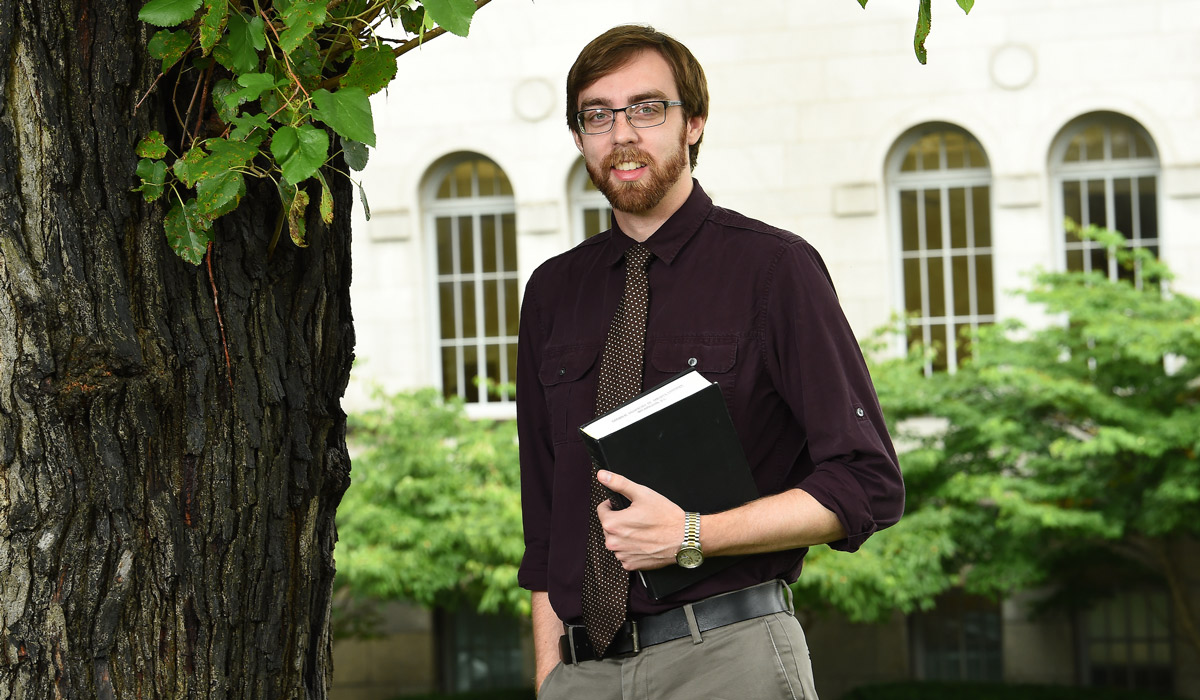

Michael Evans, a Ph.D. candidate in the English Department at The Catholic University of America, started his undergraduate work in wildlife ecology.
“I definitely did not start out doing English. For about a year I was doing wildlife ecology, so, lots of zoology and chemistry, and that kind of stuff. There was a book that I read when I was younger, Never Cry Wolf, which is about a guy running around the tundra studying wolves, and I was envisioning some grand, romantic thing like that,” he said.
Evans's vision changed when he enrolled in a philosophy class.
“As a future scholar of literature, I want to use the things I’m looking at to be active in the contemporary world.”
“While taking that class I realized that I wanted to pursue a different kind of question. But, I also didn’t want to do philosophy. I always enjoyed English — being around stories and storytelling — so I switched,” he said.
Now Evans spends his time reading, researching, and writing about 19th century American literature. He’s particularly interested in a subfield in literary criticism called “eco-criticism.” Eco-critics, “look at literature as it relates to the environment,” he explained. For Evans that means that he turns over questions about storytelling and the American frontier where cultures often “crash into each other.”
“I am really asking two questions, but I think they come together somewhere,” he said. “One, how does the particular ecology of the United States shape the narratives authors are telling? Two, how does the fact that our nation, at least in the 19th century, grew up with what was perceived as this ever-present, massive wilderness — the frontier — and how did that shape the way authors thought about the natural world and the way they placed characters in that world.”
Though Washington, D.C., is far from the historical American frontier, Evans said he was attracted to Catholic University because its location has allowed him to become more civically involved.
“There’s a lot of chances in D.C. to be in moments that you know you’ll see in history books down the line,” he said.
Evans’s civic participation, in some ways, is the natural fruit of his academic approach.
“What I wanted to do with the wildlife ecology career was help protect something, and that feeling still remains in my approach to studying literature. As scholars we shouldn’t be so shut up in the academy. We’re not doing this because we want to trace some obscure fact about the origin of a story, but because the stories we tell as human beings matter and because they continue to have an impact. As a future scholar of literature, I want to use the things I’m looking at to be active in the contemporary world. Looking at the way Americans have understood the natural world in the past, looking at that heritage, is important if we’re going to continue existing in and caring for the natural world today.”